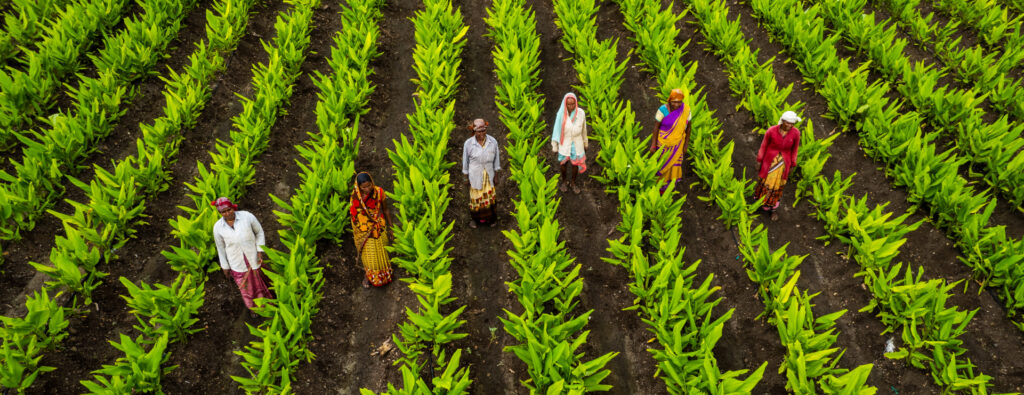
Let’s take a look at how Indian farmers are really making a difference with their approach to farming. It’s all about working with nature, not against it. By sticking to eco-friendly methods, they’re not just bumping up their crop yields – they’re also doing their bit to look after the planet. It’s a win-win, right? You get more food on the table and keep the earth green and healthy at the same time
Sustainability is quite close to our heart at Sidhya. Let’s look at how being sustainable is a total win-win for nature and the hardworking farmers in India.
You know, sustainability used to be a passing mention in conversations, earlier. But now? It’s the talk of the town, especially when it comes to farming in a place as lush and varied as India. For someone like us at Sidhya, which is all about organic millet, pushing for sustainability isn’t just some fancy buzzword to sell more stuff. It’s about looking out for our beautiful planet and making sure the folks who till the land can thrive.
So, why is this whole sustainability gig so important for Mother Nature and our farmer friends? Let me break it down for you.
First off, when we talk about keeping nature happy, it’s all about not messing it up. Old-school farming can be pretty rough on the land, what with all those chemicals that end up in the dirt and water, not to mention how it messes with all the different plants and animals. But when we go sustainable, like with natural or organic farming, we cut out that nasty stuff and let the earth do its thing.
Then there’s the big, bad climate change. Farming the usual way can make it worse, but it also gets hit hard by all the weird weather and water problems. Sustainable farming is like a superhero here—it helps trap carbon in the soil, saves water, and makes crops tough enough to handle whatever the weather throws at them.
Planting just one type of crop over a huge area is a no-no for biodiversity. But mix it up with different crops, trees, and animals, and you’ve got a party that’s good for the soil and keeps pests guessing.
We also have to think about not using up all the good stuff nature gives us. Sustainable farming is like being super smart with resources—think catching rainwater or being gentle with the soil. That way, we’re not just thinking about us; we’re thinking about the kiddos and their kiddos too.
Now, let’s talk about the farmers. Going green might seem like a big deal at first, with all the new stuff to learn and buy, but it pays off big time down the road. With healthier soil and no need to spend a fortune on chemicals, farmers can actually save some cash and make more money.
It’s not just about the money, though. Sustainable farming means farmers aren’t at the mercy of big companies for supplies, and they can bounce back better when times get tough. Plus, growing a bunch of different things means they’ve got a steadier flow of cash to help weather any storms, money-wise.
Health-wise, it’s a no-brainer. Messing with chemicals all day is bad news for farmers and their families. But with sustainable farming, they’re not taking those risks, and they’re working in a much nicer environment. Plus, the food they grow is top-notch and healthy for everyone who eats it.
Last but not least, this whole sustainable thing can really shake things up in a good way for communities. It’s all about giving everyone a fair shot, like women, tribal folks, and the younger generation, helping them stand on their own two feet. And when we support local markets and fair trade, we make sure farmers get what they deserve for their hard work.
So now you know why sustainability is the bee’s knees for both the environment and the farmers in India. It’s about taking care of our home and each other, and I’m all in. How about you?

